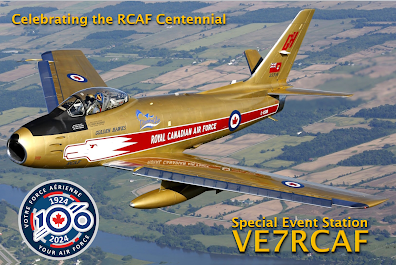New desktop publishing software opens up even more possibilities for the SARC Communicator, the digital periodical of Surrey Amateur Radio Communications. This issue is now available for viewing or download. Another new feature is a smaller version, best suited for mobile devices, available here for viewing or download. The advantage of the larger version being higher resolution graphics and photos.
The best new feature, in my opinion, is the ability to provide you with a compete Table of Contents [below]. This should enable better accessibility from search engines.
You will find some great articles in this issue, along with our regular columnists.
Now read in over 165 countries, we bring you 120+ pages of Amateur Radio content from the Southwest corner of Canada and elsewhere. With less fluff and ads than other Amateur Radio publications, you will find Amateur Radio related articles, projects, profiles, news, tips and how-to's for all levels of the hobby.
Download the January - February Communicator in
LARGE or SMALL format, or read it on-line like a magazine
Previous Communicator issues:
Search for past Communicator issues
and a full searchable index is HERE.
As always, thank you to our contributors, and your feedback is always welcome.
The deadline for the next edition is February 15th.
If you have news or events from your club or photos, stories, projects or other items of interest from BC or elsewhere, please contact us at communicator@ve7sar.net
73,
John VE7TI
'The Communicator' Editor
The Table of Contents for the January-February 2025 Communicator issue:
- The Rest of the Story: Charles Wheatstone 4
- News You Can’t Lose: Field Day results are in 12
- Page13—News You Can Lose 13
- Radio Ramblings: Reflections 15
- Does the Ghost of Salvador Dali Haunt ChatGPT? 26
- Tech: A transceiver on your Android phone 27
- Xiegu G90 Review 28
- Another Tape Measure Antenna 31
- POTA is Calling - Will you answer? 32
- A Different Kind of Foxhunt 34
- USA Radio Orienteering Championship 35
- Mastering iCOM HF: A deep dive into filtering capabilities 37
- Schooling ChatGPT on Antenna Misconceptions 42
- LIDS: The Less Involved Data Society 43
- Experimental Maritime Mobile on 630m 44
- From the ATV Journal 48
- B.C. QSO Party 50
- A Light Dipole 52
- An Easy Field Strength Meter 53
- AMSAT - OSCAR 7 55
- Dutch Amateur Radio Operators Detect Signals From Voyager 1 56
- Update on the Local High Altitude Balloon Project 57
- They Don’t Make ‘em Like They Used To… 58
- LingoSat ISS Deployment 59
- Canadian Amateur Radio Hall of Fame Appointments 2024 60
- The Santa Barbara 1925 Earthquake 62
- Ham Radio Outside the Box: Antenna height matters 65
- What Did Beethoven Do For Ham Radio? 68
- VE9KK - The World of CW: I am at peace with the RFI gods 69
- K0NR - 2 Meters: Handie-Talkie or Walkie-Talkie? 71
- Which Modes Have You Operated? 73
- KB6NU’s Ham Radio: Hurricane Helene 74
- Pico-based SDR runs stand-alone 75
- Foundations of Amateur Radio: The venerable QSL bureau 76
- No-ham Recipe: Oatmeal brown bread 79
- Back to Basics: Codes & encryption 80
- Profiles of SARC Members: Jeanne Wilson VA7QD 88
- CQ WW DX Contest [CW] 92
- ARRL 10m Contest 94
- RAC Winter Contest 96
- SARC News… 97
- SEPAR Report 103
- Ham Leftovers... 107
- QRT: Blog vs PDF? 108
















